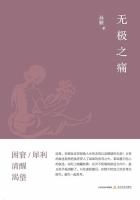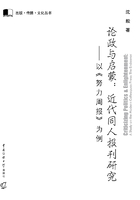Strozzi, /Controversia dell' Immacolata Concezione/, 1700.
Roskovany, /De Beata Virgine in suo conceptu immaculata/, 1873-92.
Le Bachelet, /L'Immac. Conc./, 1903. Bishop, /The Origins of the Feast of the Conception of B.V.M./, 1904. Ullathorne, /The Immaculate Conception of the Mother of God/, 1904.
From the days of Dons Scotus the doctrine of the Immaculate Conception was received very generally by the universities and theologians. The Dominicans, feeling themselves called upon to support the views of St.
Thomas, who argued against the Immaculate Conception as understood in his own time, opposed the common teaching. The question was brought before the schismatical assembly at Basle (1439), where it was defined that the Immaculate Conception of the Blessed Virgin was in harmony with reason and Scripture, and should be approved and accepted by all Christians. This teaching was confirmed by several provincial synods in France and Germany, as well as by many of the universities. Paris and Cologne, for example, obliged all their members to swear to defend the doctrine. Sixtus IV. bestowed indulgences on those who would observe the Feast of the Immaculate Conception (1476), but although favouring the doctrine he forbade the defenders or opponents to charge each other with heresy (1483). When in the discussions on Original Sin at the Council of Trent the subject was raised, no formal decision was given because the Fathers were determined to direct all their attention to the doctrines that had been rejected by the Reformers. At the same time the opinion of the Fathers was expressed clearly enough, since they declared that in their decrees regarding the universality of Original Sin they did not mean to include the Immaculate Virgin Mary (V. Sess. 1546). Pius V. condemned a proposition of Baius, in which it was laid down that Christ alone escaped the guilt of Original Sin, and that the Blessed Virgin suffered death on account of the guilt she contracted by her descent from Adam (1567). A Spanish Franciscan, Francis of Santiago, having claimed that he had a vision in support of the doctrine, a sharp controversy broke out in Spain, to end which Philip III. besought the Pope to give a definitive decision.
Paul V. contented himself, however, with renewing the decrees of his predecessors Sixtus IV. and Pius V. forbidding charges of heresy to be bandied about by the disputants (1616), but in the following year he forbade any public defence of the theses directed against the doctrine of the Immaculate Conception. Gregory XV. though unwilling to yield to the request of the Spanish Court for a formal definition, prohibited either public or private opposition to the doctrine unless in case of those who had received special authorisation from the Holy See.
Finally in 1661 Alexander VII. in the constitution, /Sollicitudo omnium Ecclesiarum/, explained the true meaning of the doctrine, and forbade any further opposition to what he declared to be the common and pious belief of the Church.
(e) Tyrannicide.
Hergenrother, /Katholische Kirche u. Christl. Staat/, 1872.
Parkinson, /Catholic Writers on Tyrannicide/ (/Month/, March-April, 1873). Duhr. /Jesuiten-Fabeln/, 3 auf., pp. 659 sqq.
Whether Tyrannicide is lawful or unlawful was a question on which different views were held by theologians. The murder of the Duke of Orleans by orders of the Duke of Burgundy (1407) helped to stir up the controversy. Amongst the dependants of the Duke of Burgundy was a priest, John Parvus (Petit or Le Petit), who accompanied the Duke to Paris, and in a public assembly defended the Duke of Burgundy on the ground that it was lawful to murder a tyrant (1408). Nine propositions selected from this speech were condemned by the Bishop of Paris, by the Inquisition, and by the university (1414). The Duke of Burgundy appealed to Pope John XXIII., while the representatives of France at the Council of Constance were instructed to seek the opinion of the assembly. The discussion of the subject was complicated by political issues. As the Council of Constance was anxious to avoid all quarrels with the King of France, the Duke of Burgundy, or the Emperor, it contented itself with issuing a very general condemnation of Tyrannicide. Before the council closed, however, the question was raised once more in connexion with a book published by the Dominican, John of Falkenberg, who was a strong partisan of the Teutonic Knights in their struggle against the King of Poland, and who maintained that it was lawful to kill the King of Poland. He undertook the defence of Petit's work, and wrote strongly against the representatives of the University of Paris. The Poles demanded his condemnation, but though he was arrested and detained in prison his book was not condemned by the council. A Dominican chapter held in 1417 repudiated Falkenberg's teaching.















